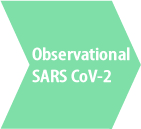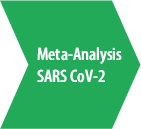On March, 11, 2020, Fang et al. published in Lancet Respiratory Medicine suggesting that many of the patients that died in China from COVID-19 had a past medical history of high blood pressure and diabetes. They theorized that higher rates of expression of ACE2 (the binding protein for SARS-CoV-2) may increase severity of COVID-19 infection. NSAIDS can also increase ACE2 and thus it was hypothesized they could worsen COVID-19 disease severity.
On March 14, 2020 - The French Ministry of Health published a warning against ibuprofen for COVID-19 and recommended tylenol instead of NSAIDS for fever
This was rapidly spread on worldwide news outlets.
 = Supporting use article = Supporting use article |
 = Neutral Article = Neutral Article |
 = Contradicting use article = Contradicting use article |

   |
 |
 |
 |
 |
 |
Interpretation
Fang et al.'s hypothesis was likely premature and unfounded. The studies showing increased hypertension and diabetes were unadjusted and did not account for the increased age of the patient's that died from COVID-19. For example, Fang references Zhang et al's study that identified 30% of patients that died from COVID-19 had hypertension. However, the median age of patients that died in Zhang's study was 57 years old. In the United States 63% of American's age 60 years and older have hypertension (see table below from NCHS, 2015-2016).
There is no data to support Fang's hypothesis. In fact in vitro studies in SARS-CoV-1 actually showed cytotoxic effects of indomethacin in vitro (see data). Furthermore, a study looking at protein-protein interaction mapping with SARS-CoV-2 identified indomethacin as a potential treatment for COVID-19 with an IC50 of 750 nM [Source].
Initial Source of Controversy:
References Supporting NSAIDS (Indomethacin) in SARS-CoV-1 or SARS-CoV2:
Response: